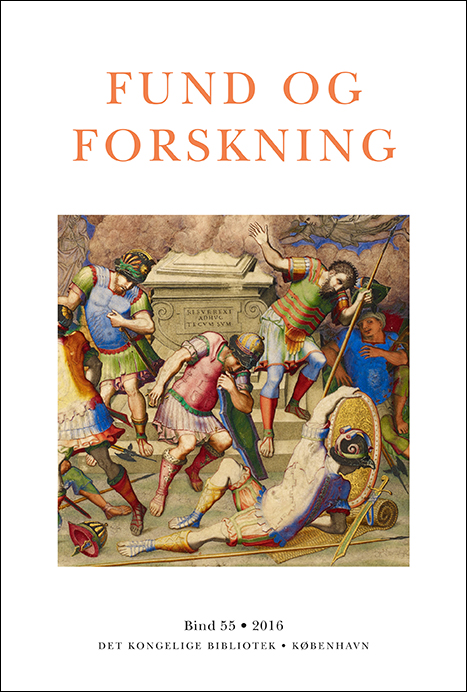“Ægyptologiens Fremtid i vort Land”. H.O. Langes videnskabelige testamente
DOI:
https://doi.org/10.7146/fof.v55i0.118920Resumé
Lars Schreiber Pedersen: “The Future of Egyptology in our Country.” H. O. Lange’s scientific testament
The Royal Library in Copenhagen is the natural home of the Egyptologist and librarian H. O. Lange’s comprehensive archives. For almost 40 years, from 1885 to 1924, he worked at the library, from 1901 to 1924 as chief librarian.
The archives at the section for Egyptology at the Department of Cross-Cultural and Regional Studies (ToRS) at the University of Copenhagen include a small collection of manuscripts, notes and letters to and from H. O. Lange. The collection also contains a scientific testament prepared by H. O. Lange. The testament is undated, but is thought to have been written in 1938 or 1939. In the testament, which H. O. Lange drew up after retiring from his position as associate professor in Egyptology at the University of Copenhagen, he gave an account of his own efforts within the relatively young field of study, which only gained a foothold at the university following the establishment of his own associate professorship in 1924, while also suggesting how the status of Egyptology in Denmark could be promoted. Characteristically for H. O. Lange, in the testament he was very modest about the results he had achieved during his time at the university. Instead, he drew attention to the people and institutions (in particular the Carlsberg Foundation) who had made it possible for him to establish Egyptology as a field of study at the University of Copenhagen.
The training of a new generation of Danish Egyptologists who could ensure the University of Copenhagen’s continued leading position in Scandinavia was an issue very close to H. O. Lange’s heart. In the testament, he gave particular mention to his four best students: C. E. Sander-Hansen, Wolja Erichsen, Aksel Volten and Erik Iversen. He described what their future prospects and opportunities might be, including which jobs he thought they should each take upon themselves.
All four students became prominent Egyptologists in their own right, and contributed to ensuring that the University of Copenhagen’s international reputation within Egyptology achieved as a result of H. O. Lange’s long-standing work was not just maintained but further expanded and developed.


